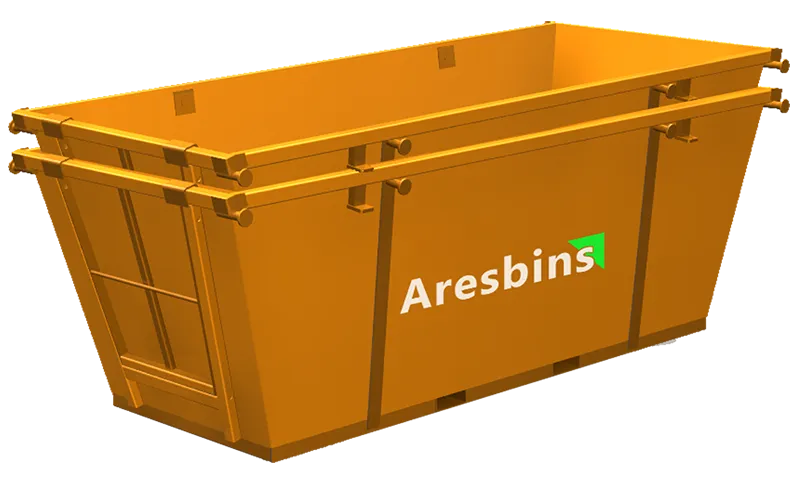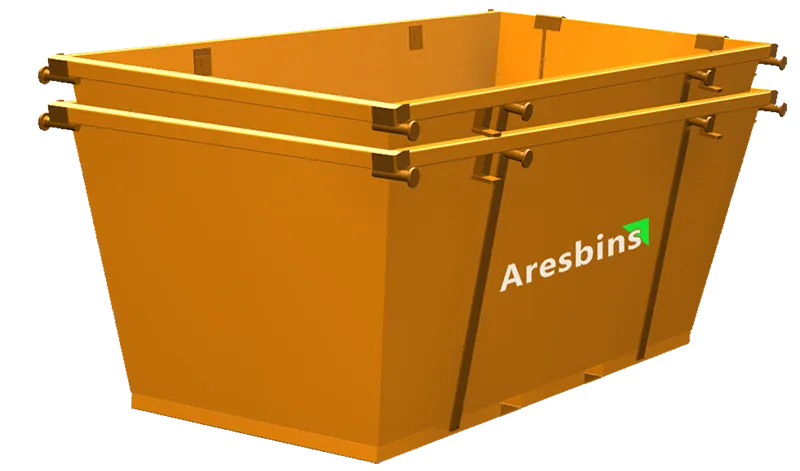Impact Analysis of China’s “Zero-Waste City” Policy on Aresbins
China’s “Zero-Waste City” policy aims to reduce solid waste generation through green development approaches, promote resource utilization, and minimize landfill waste to reduce environmental impact. For solid waste management companies like Aresbins, this policy presents significant impacts and opportunities.
Market Demand Faced by Aresbins
1. Enhanced Solid Waste Management Regulations
With the continuous strengthening of government regulations on solid waste management, Aresbins needs to improve its capabilities in waste reduction, resource utilization, and safe disposal.
2. Strengthening Waste Processing Capabilities
To comply with policy requirements, Aresbins must enhance its technology in waste classification, recycling, and resource utilization, particularly in household waste recycling and hazardous waste disposal.
3. Demand for Innovation in Technology and Business Models
The policy encourages innovation in solid waste treatment technology and business models. Aresbins must increase its R&D efforts to develop new technologies that align with market demand to enhance its competitiveness.
Potential Opportunities for Aresbins Under the Policy
1. Policy Support and Market Expansion
By 2025, China aims to implement the “Zero-Waste City” initiative in 100 cities, providing new market opportunities for Aresbins. The company can expand its business in these cities and assist local governments in achieving solid waste management goals.
2. Increased Demand Due to Higher Resource Utilization Rates
The policy sets specific targets for resource utilization in various industries. For example, the recycling rate of household waste must reach at least 35%. Aresbins can meet these demands by offering efficient recycling systems and technological solutions.
Aresbins’ Strategies for Overcoming Challenges
1. Strengthening Technological Innovation
To meet the technology-driven requirements of the policy, Aresbins must continuously upgrade its solid waste treatment technologies, especially in hazardous waste and construction waste recycling.
2. Enhancing Cooperation with Local Governments
Local governments play a key role in implementing the “Zero-Waste City” policy. Aresbins should actively collaborate with government bodies, providing professional consultancy and technical support to facilitate policy implementation.
By leveraging market opportunities from the policy and strengthening innovation and market expansion, Aresbins can achieve new growth under China’s “Zero-Waste City” initiative.
How Does the “Zero-Waste City” Policy Drive the Skip Bin Industry?
The policy accelerates the transformation of the Skip Bin industry, particularly in construction waste management and resource recycling. With government guidance, the industry is evolving toward smart, eco-friendly, and efficient solutions, promoting overall sector development.
1. Policy Boosts the Growth of Construction Waste Processing
- From 2018 to 2022, China’s construction waste treatment and resource utilization market grew from 4.3 billion CNY to 7.9 billion CNY.
- By 2026, China’s construction waste generation is projected to reach 3,618.3 million tons.
- Policy incentives create new opportunities for Skip Bin businesses, promoting construction waste collection and recycling.
2. Enhancement of Environmental and Resource Utilization Standards
- The policy emphasizes reducing construction waste generation and promoting resource utilization.
- China’s construction waste resource utilization rate is below 10%, significantly lower than developed countries’ 90%.
- The policy accelerates the narrowing of this gap, driving innovation in Skip Bin industry solutions for recycling and smart waste collection.
3. Smart Technology Driving Industry Growth
- The policy promotes the adoption of smart recycling systems, leading to more efficient and environmentally friendly construction waste treatment.
- Technologies such as IoT, big data, and cloud computing are driving the development of intelligent waste classification and recycling stations.
- These smart systems enhance recycling efficiency and encourage the development of smart Skip Bin solutions to meet growing environmental demands.
Aresbins’ Opportunities and Competitive Advantages
1. Environmentally Compliant Products
✅ Aresbins’ products meet or exceed environmental standards for waste management equipment.
✅ Use of recycled and recyclable materials to minimize resource waste.
✅ Energy-efficient manufacturing processes to reduce carbon emissions.
✅ Modular design allows for easy disassembly and recycling at the end of product life.
2. Innovative Smart Skip Bin Features
✅ IoT-enabled sensors monitor waste levels in real time, optimizing collection routes.
✅ Solar-powered compression system increases bin capacity and efficiency.
✅ RFID tracking technology supports “pay-as-you-throw” models.
✅ Modular design for easy maintenance and part replacement, extending product lifespan.
3. Supporting Source-Sorting Initiatives
✅ Multi-compartment design for efficient separation of organic waste, recyclables, and landfill waste.
✅ Clear labeling and color coding to assist users in proper waste sorting.
✅ Educational displays to raise public awareness of waste classification.
4. Data-Driven Waste Management
✅ Real-time waste data tracking for policy decision-making.
✅ Predictive analytics to optimize waste collection schedules.
✅ Reporting tools to track progress toward zero-waste goals.
5. Government Collaboration
✅ Pilot programs to test new Skip Bin technologies.
✅ Customized bin designs based on city-specific waste management needs.
✅ Training and technical support for waste management personnel.
6. Contribution to the Circular Economy
✅ Use of recycled ocean plastics to manufacture Skip Bins, promoting environmental sustainability.
✅ Bin recycling programs to support full lifecycle management.
✅ Repair and refurbishment services to extend product longevity.
By focusing on these areas, Aresbins can become a key partner in implementing the zero-waste policy, providing innovative and sustainable waste management solutions for cities.
Future Market Trends & Aresbins’ Strategic Direction
Market Outlook
China’s waste classification and resource utilization industry is growing rapidly. By 2030, the industry is projected to reach 7–8 trillion CNY, creating 40–50 million jobs. This presents enormous market demand and growth potential for Zero-Waste City initiatives.
Future Development Trends
? Enhancing top-level design: Strengthening legal and policy frameworks to support waste classification and resource utilization.
? Promoting smart waste management: Developing intelligent waste information platforms to improve efficiency.
? Advancing technological innovation: Pushing forward breakthroughs in waste processing technology.
? Encouraging market-driven development: Incentivizing enterprise participation and solidifying the commercial waste sector.
? Strengthening regional collaboration: Exploring cross-region waste management models to optimize resource utilization.
Aresbins’ Strategic Positioning
? Aligning with market trends: Accelerating smart waste classification and resource utilization development.
? Expanding regional partnerships: Engaging in “Zero-Waste City” projects in key urban clusters like Beijing-Tianjin-Hebei and Yangtze River Delta.
? Increasing technological innovation: Investing in R&D to drive advancements in solid waste processing.
How Aresbins Can Leverage the “Zero-Waste City” Policy for Market Expansion
✅ Developing Smart Skip Bin Solutions for Zero-Waste Cities
? Integrating RFID, IoT, and big data to enhance waste classification and tracking.
? Improving waste collection efficiency by over 30%.
✅ Participating in Construction Waste Recycling Projects
? Supplying specialized Skip Bins for construction waste processing sites.
? Managing 50–100 million tons of construction waste annually.
✅ Collaborating with Governments for Pilot Programs
? Launching waste sorting demonstration communities.
? Establishing a digital waste management platform for city-wide monitoring.
✅ Expanding into Global Green Markets
? Targeting emerging markets in Southeast Asia & the Middle East.
? Projecting 30% revenue growth from international operations in the next five years.
By executing these strategies, Aresbins can adapt to policy shifts, expand market presence, and position itself as a global leader in sustainable waste solutions.





Recent Comments